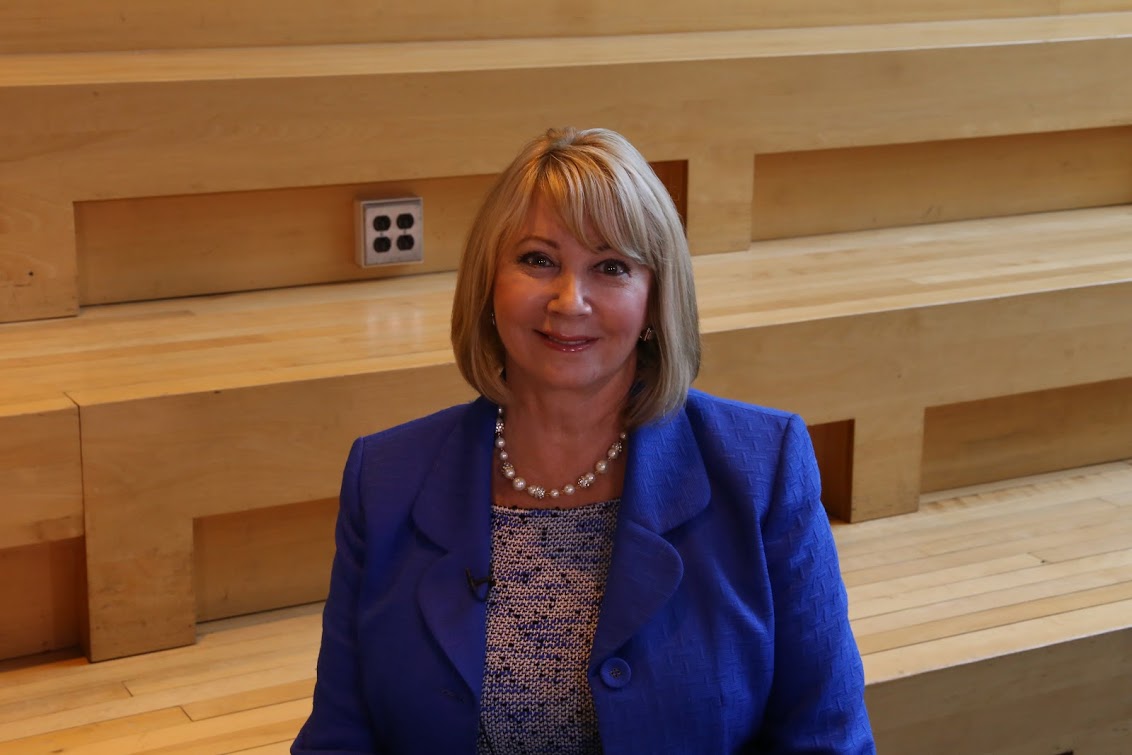 NEWS
NEWS
 NEWS
NEWS
 NEWS
NEWS
Finding value in Big Data and data lakes while drawing out valuable information that can actually represent dollars is a huge mandate for leading enterprise organizations. Barbara Latulippe, chief data governance officer at EMC, is driving the effort, as well as changing the corporate culture to see the tangible value of data and creating positions of ownership around an organization’s data. This week, theCUBE, from the SiliconANGLE Media team, selected Latulippe for our Women in Tech feature.
During the MIT CDOIQ Symposium held last week at the MIT Campus in Cambridge, MA, Latulippe, joined Stu Miniman (@stu) and Paul Gillin (@pgillin), cohosts of theCUBE, to discuss her role as the chief data governance officer and her efforts to ensure data quality and provide an opportunity for business growth through access to data.
Throughout the MIT CDOIQ Symposium, there was an ongoing debate as to the role of the Chief Data Officer (CDO) and their place within an organization. When asked to explain the difference between a chief governance officer and CDO, Latulippe discussed how she fits into the corporate overview.
“[A chief governance officer and chief data officer] are virtually one of the same. By default, we cover master data management data quality and data governance and try to drive the value of the data for the business. … Analytics is still managed by a lot of the analytics officers, as well as security. We have a global security office. So we have a strong partnership with them. But I really view that we are an enabler to those teams and have to have that strong partnership. That’s why our scope right now is data governance. I think we are maturing to where we want to build out a formal chief data officer role and bring some of that together.
“I started [with] EMC in the IT office, so I worked with the Office of Innovation — a more traditional, enterprise architecture role — to lay out a roadmap and drive data governance in the information management practices. I’m a strong advocate that data governance belongs in the business. They are the closest to how data is used in the business process, so I think IT organizations really see the need up front, especially with data integration and data migration projects.
“At my last three companies, I was very successful in handing it off to the business. I feel it has much more success when it’s business driven, because then you can tie it to business value cases and also drive it to perform its metrics, as well as what the strategy is the business is trying to achieve.”
When asked if the role of the CDO should report to the CIO or CEO, Latulippe made it clear that you need to work with the executive level in order to drive the value of data.
“Ideally, the role of the CDO should be at an executive level because … unless you have leadership buy-in and executive sponsorship, it’s really hard to drive data governance initiatives. It’s really a culture change. You’re trying to drive ownership around critical data elements; you’re trying to have accountability; and more important for us, you’re trying to drive metrics. We also went live with the data lake, so we are running quite a few Big Data value cases on the lake. So I really think you need to have that at the business executive level with full leadership buy-in from the top down.”
When you get down to actually working with Big Data, the data lake and analytics, Miniman asked Latulippe how it interacts with data governance. She explained the process of working with engineers to show how governance opens up the data.
“The journey at EMC, we started with traditional data governance, which was more focused around SAP [System, Application and Product] or ERP [Enterprise Resource Planning] implementations. And then we kind of matured up through data quality initiatives and then MDM [Master Data Management] hubs with what we call data services. So I was asked to take on, by the executive sponsor in the business, who was the president of global services, [to] drive governance for the lake.
“The biggest challenge, certainly managing a data scientist team, is ‘how can I find my data in a lake?’ We put together a framework and operating model for the business to understand what data is available to use in the lake. I think that’s the big part — putting the business semantics around metadata and enabling the transparencies for the organization to consume the data to drive those Big Data value cases.”
The interview is packed with information about the real dollar value of data, who owns the data and how to achieve data stewardship. Summing up, Latulippe presented the challenges and how to overcome them.
“The challenges aren’t with the technology; it’s all around engaging and changing the culture, which does need strong executive sponsorship. It’s about the ability to bring several groups together and drive to consensus and focus on what’s really key to keep your project going; you need metrics. You have to measure and monitor, and we’ve had a lot of success by showing good data quality. And we always drive process improvement. We partner back with the lead Six Sigma team, and we are able to show tangible value to the business for both cost and opportunity through measuring good data quality.”
Watch the full interview below, and be sure to check out more of SiliconANGLE and theCUBE’s coverage of the MIT CDOIQ Symposium.
THANK YOU